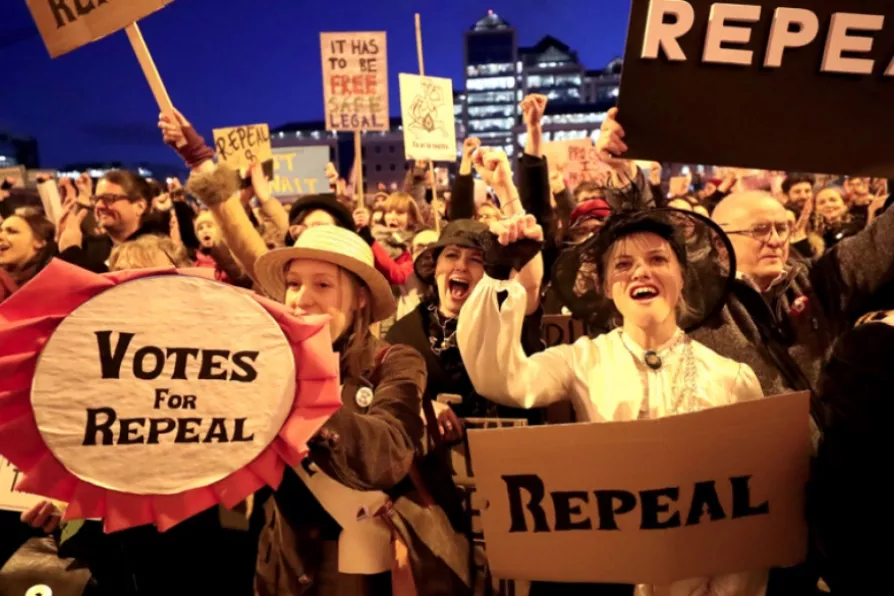John Wojcik pays tribute to a black US activist who spent six decades at the forefront of struggles for voting rights, economic justice and peace – reshaping US politics and inspiring movements worldwide
Putting the campaign to Repeal the 8th centre stage
In May this year Irish citizens will vote in a referendum on abortion rights. FIONA O’CONNOR explains how her new play seeks to encourage women to make sure they vote for their right to choose

 People carrying various signs gather outside The Custom House in Dublin, as participants take part in a march through the city calling for the repeal of the 8th amendment to the Irish constitution
People carrying various signs gather outside The Custom House in Dublin, as participants take part in a march through the city calling for the repeal of the 8th amendment to the Irish constitution
FOR decades Britain has provided an escape hatch for Irish women.
There’s a long history of boats and trains releasing the Irish into the anonymous streets of London, Manchester, Liverpool and Birmingham.
Irish workers have been travelling across to Britain for centuries.
Similar stories

A beautifully-crafted documentary from Sinéad O’Shea












